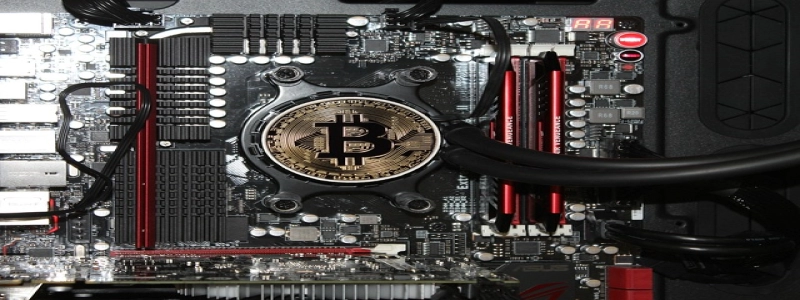[SFP Router]
1. Introducción
1.1 Definition of SFP Router
1.2 Importance of SFP Router in Networking
2. Key Features of SFP Router
2.1 Hot-Swappable SFP Modules
2.2 Multiple Gigabit Ethernet Ports
2.3 Advanced Routing and Security Protocols
2.4 Flexible Network Configurations
2.5 Scalability and Performance
3. Benefits of Using SFP Router
3.1 Enhanced Network Connectivity
3.2 Improved Network Performance and Reliability
3.3 High-Speed Data Transfer
3.4 Solución rentable
3.5 Future-Proof Network Infrastructure
4. How SFP Router Works
4.1 SFP Module Compatibility
4.2 Routing and Switching Functions
4.3 Network Configuration and Management
4.4 Integration with Existing Network Infrastructure
5. Use Cases of SFP Router
5.1 Small to Medium-Sized Businesses
5.2 Data Centers and Server Rooms
5.3 Internet Service Providers
5.4 Enterprise Networks
5.5 Remote/Branch Offices
6. Considerations for Choosing an SFP Router
6.1 Scalability and Port Density
6.2 Security Features
6.3 Advanced Routing Protocols Support
6.4 Network Management Capabilities
6.5 Manufacturer and Support
7. Conclusión
1. Introducción
1.1 Definition of SFP Router
An SFP (Small Form-Factor Pluggable) router is a network device that combines the functionalities of a router and a switch, offering high-speed data transfer, advanced routing protocols, and secure network connectivity. It is designed to accommodate small form-factor pluggable modules that can be hot-swapped easily, providing flexibility in network configuration and scalability.
1.2 Importance of SFP Router in Networking
SFP routers play a crucial role in modern networking environments by providing efficient communication between networks, facilitating connectivity between devices and networks, and ensuring the security and reliability of network connections. They are widely used in various industries, including small to medium-sized businesses, data centers, internet service providers, and enterprise networks.
2. Key Features of SFP Router
2.1 Hot-Swappable SFP Modules
The SFP router utilizes hot-swappable SFP modules that can be easily plugged in or removed, allowing for quick network reconfiguration or upgrades without disrupting network operations. This flexibility enables organizations to scale their networks and adapt to changing requirements efficiently.
2.2 Multiple Gigabit Ethernet Ports
SFP routers offer multiple Gigabit Ethernet ports, enabling high-speed data transfer between devices and networks. These ports support various transmission media such as copper or fiber optic cables, providing flexibility in network design and compatibility with different network infrastructures.
2.3 Advanced Routing and Security Protocols
SFP routers support advanced routing protocols such as OSPF (Open Shortest Path First) and BGP (Border Gateway Protocol), allowing for efficient routing and optimal network performance. They also incorporate security features like firewall protection, VPN (Virtual Private Network) support, and access control policies to ensure secure network communication.
2.4 Flexible Network Configurations
SFP routers can be configured in various network topologies, including LAN (Local Area Network), WAN (Wide Area Network), and VPN, providing organizations the flexibility to design and manage their networks according to their specific requirements.
2.5 Scalability and Performance
SFP routers offer scalability options to accommodate growing network demands. Organizations can easily add more SFP modules or upgrade existing modules to increase network capacity and performance without the need to replace the entire router infrastructure.
3. Benefits of Using SFP Router
3.1 Enhanced Network Connectivity
SFP routers provide reliable network connectivity by efficiently routing network traffic and ensuring constant data flow between devices and networks. They offer high bandwidth capabilities, minimizing latency and improving overall network performance.
3.2 Improved Network Performance and Reliability
With advanced routing protocols and multiple Gigabit Ethernet ports, SFP routers optimize network performance, ensuring seamless communication between devices and networks. They also incorporate redundancy features such as link aggregation and failover mechanisms to enhance network reliability.
3.3 High-Speed Data Transfer
SFP routers support high-speed data transfer rates, enabling organizations to transmit large volumes of data quickly and efficiently. They are particularly useful in data-intensive applications such as video streaming, cloud computing, and large-scale data transfers.
3.4 Solución rentable
SFP routers offer a cost-effective solution for network connectivity and expansion. By utilizing hot-swappable SFP modules, organizations can easily upgrade or replace specific components without the need to invest in an entirely new routing infrastructure, resulting in cost savings and reduced downtime.
3.5 Future-Proof Network Infrastructure
With their scalability, performance, and support for advanced technologies, SFP routers provide organizations with a future-proof network infrastructure that can adapt to evolving networking requirements. This ensures that the network remains efficient, secure, and capable of accommodating emerging technologies.
4. How SFP Router Works
4.1 SFP Module Compatibility
SFP routers are compatible with a wide range of SFP modules, including copper and fiber optic modules, allowing organizations to choose the appropriate module based on their specific networking needs. This compatibility ensures seamless integration with existing network infrastructure.
4.2 Routing and Switching Functions
SFP routers combine the functionalities of a router and a switch, enabling them to route traffic between devices and networks while also offering switching capabilities within the internal network. This allows for efficient network operations and optimized data transfer.
4.3 Network Configuration and Management
SFP routers provide intuitive web-based interfaces and management tools for easy network configuration and monitoring. This enables network administrators to set up VLANs (Virtual Local Area Networks), calidad de servicio (Quality of Service) policies, and security protocols, ensuring efficient network management.
4.4 Integration with Existing Network Infrastructure
SFP routers seamlessly integrate with existing network infrastructure, supporting various network protocols and technologies. They can be deployed alongside existing routers, switches, and firewalls, allowing organizations to expand their networks without disrupting current operations.
5. Use Cases of SFP Router
5.1 Small to Medium-Sized Businesses
SFP routers are ideal for small to medium-sized businesses that require flexible network configurations and scalable solutions. They provide reliable connectivity for multiple devices, ensuring seamless communication within the organization while supporting growth and expansion.
5.2 Data Centers and Server Rooms
SFP routers are widely used in data centers and server rooms to manage the flow of network traffic and ensure high-speed data transfer. They offer efficient routing and advanced features like load balancing and failover, enabling smooth operations and minimizing downtime.
5.3 Internet Service Providers
SFP routers are essential for internet service providers to deliver reliable and high-performance internet connectivity. They support large-scale networks, offer advanced routing protocols for efficient traffic management, and provide secure communication channels for customers.
5.4 Enterprise Networks
SFP routers are deployed in enterprise networks to support complex network architectures and ensure secure communication between different departments and branches. Their scalability, high-speed data transfer, and advanced security features make them an ideal choice for large organizations.
5.5 Remote/Branch Offices
SFP routers are utilized in remote or branch offices to establish secure connections with the main headquarters or data centers. They enable efficient communication between different locations and provide reliable network connectivity, ensuring seamless operations and collaboration.
6. Considerations for Choosing an SFP Router
6.1 Scalability and Port Density
Organizations should consider the scalability and port density of an SFP router to ensure it can accommodate their current and future network requirements. SFP routers with modular designs and multiple expansion slots offer the flexibility to scale the network as needed.
6.2 Security Features
Network security is crucial, and organizations should evaluate the security features offered by an SFP router. Features like firewall protection, VPN support, access control policies, and intrusion detection systems help safeguard the network against cyber threats and unauthorized access.
6.3 Advanced Routing Protocols Support
Depending on the specific networking needs, organizations should ensure that the SFP router supports advanced routing protocols such as OSPF, BGP, and RIP (Routing Information Protocol). These protocols enable efficient routing, load balancing, and failover mechanisms for optimal network performance.
6.4 Network Management Capabilities
The SFP router should have comprehensive network management capabilities, including intuitive web-based interfaces, monitoring tools, and reporting functionalities. This allows network administrators to easily configure the network, monitor performance, and troubleshoot issues effectively.
6.5 Manufacturer and Support
Choosing an SFP router from a reputable manufacturer with a proven track record ensures product reliability and quality. Additionally, organizations should consider the availability of technical support, firmware updates, and warranty services to ensure a smooth network operation.
7. Conclusión
SFP routers are critical components of modern networking infrastructures, providing efficient network connectivity, enhanced performance, and secure data transfer. With their flexibility, scalability, and advanced features, SFP routers are the ideal choice for organizations looking to build reliable, future-proof networks. By considering the key features, benefits, and use cases discussed in this article, organizations can make informed decisions when selecting an SFP router that meets their networking requirements.








